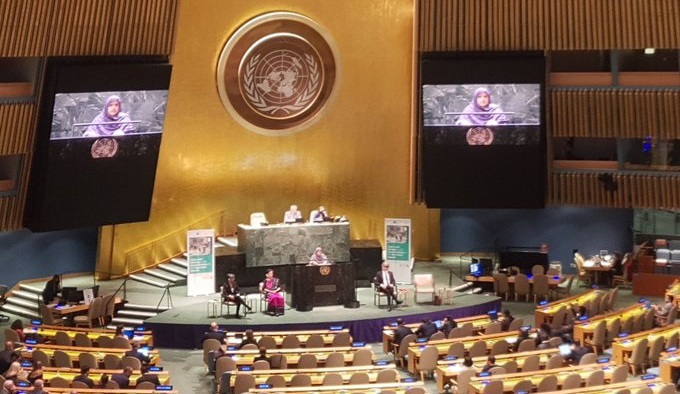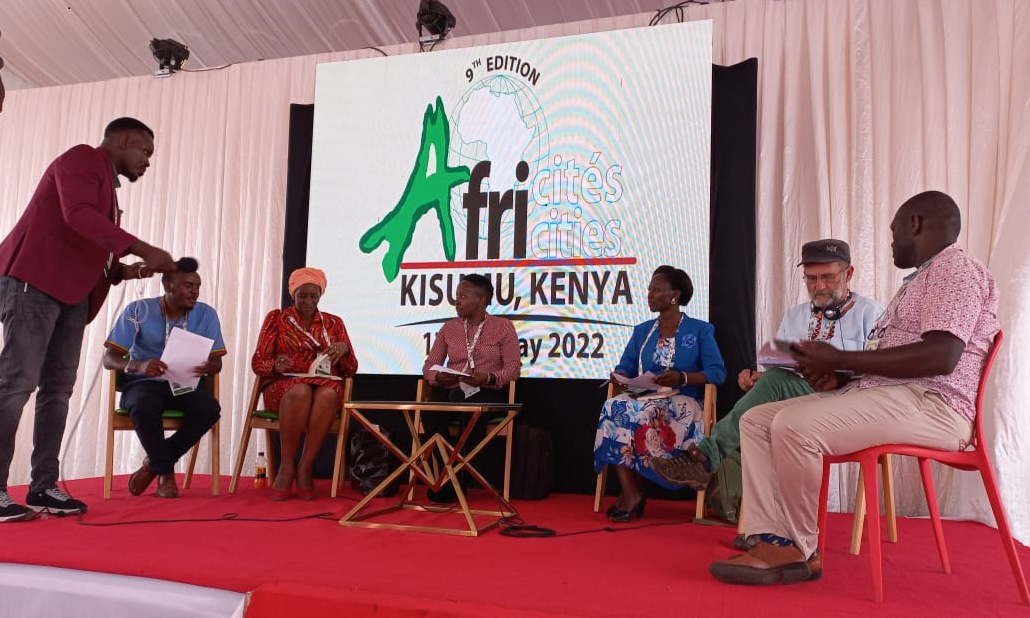Findings: In the last ten years, articulations and convergences between activists, social movements, inhabitants’ and neighbourhood organizations as well as technical supports that defend the right to habitat have been consolidated. We gather around the struggle for the realization of Economic, Social, and Cultural Rights (ESCR) that are fundamental in defending the structural place of the family, rural and urban communities, and coexistence based on the inclusion of all people. We refer to the ESCR that are related to habitat and which correspond to state obligations related to housing, water and sanitation, education, health and citizen participation. These are the legal basis for demanding collective rights to land, natural resources, livelihoods, energy, transportation and recreation, and especially the right to the city, food sovereignty and climate justice. Due to the close relationship with the family, home, neighbourhood, village and public space, women are principle protagonists in local struggles to defend the right to habitat. Women, as well as children, disabled people, the evicted, homeless, nomads, refugees and migrants are the main people excluded from these rights and therefore must be recognized and their rights defended in all of these struggles.
The obstacles towards realizing the right to habitat are multiplied throughout the world, regardless of local cultural differences. Therefore, it is our duty to denounce real estate and land speculation practices that threaten the land of the poorest, most disadvantaged and vulnerable populations with land grabbing, destruction of neighbourhoods and villages, gentrification of long-standing neighbourhoods, rising rents compared with the stagnation of incomes, mega-project and mega-event planning and development which violate the right of communities to remain in their traditional homes, armed conflicts and occupied territories, “natural” disasters, and the effects of climate change which provoke floods, landslides and water, air and soil pollution. All of these territorial phenomena generate mass forced evictions, increasingly affecting rural and urban populations throughout the world.
Proposals: We, local, national, regional, continental and global organizations gathered here in the process of building the World Assembly of Inhabitants, pledge to continue united in building solidarity, so that all people may have the right to live in peace and with dignity in the countryside and in the city.
We also commit to participate in the Global Campaign for the Right to Habitat, held yearly on the first Monday of October.
On October 3, 2011 and October 1, 2012, the themes that will bring us together around the world are: (i) the causes and effects of forced evictions, the suffering and impoverishment of people affected by rural and urban habitat problems; and (ii) solidarity with activists for the right to habitat who have been victimized by repression and violence against their civil and political rights.
The annual campaign for the right to habitat will be organized in an inclusive and diverse manner, coordinated by all those involved in habitat struggles throughout the world by means of marches, protests, demonstrations, occupations, and public debates and meetings, among other expressions. The circulation of the campaign will be done primarily by social networks through the internet, and will also be publicized on the websites of the social movements, networks and organizations engaged in the campaign.
To implement this commitment, an inclusive working group will be formed by representatives from the key networks and organizations of this convergence. Within two weeks, this committee will assemble the results of the work conducted in the popular neighbourhoods and the university campus during the WSF 2011, to concretize the solidarity for struggles against rights violations, the causes of which are continuously repeated throughout the world.
On February 10, 2011 in Dakar, the following networks and organizations sign this commitment:
ABONG, Brazilian Association of NGOs
ACIDAK Asociation Comité Interbidonville, (Dakar, Senegal)
AHTB, Association des Habitants et Travailleurs de Baraka (Dakar, Senegal)
AITEC, Association Internationale des Techniciens et Chercheurs (France)
ALOP, Associación Latinoamericana de Organizaciones de Promoción
CERPAC, Centre de Recherche Populaire pour l’Action Citoyenne(Senegal)
Comité de Gestion des Inondations et de Déguerpissement de Médina Goumars (Guédiawaye, Senegal)
DAL, Droit au Logement (France)
EMAD, Entente des Mouvements et Associations de Développement (Dakar, Senegal)
ENDA-Economie Populaire (Senegal)
ENDA-Relais pour le Développement Urbain Participé, (Senegal)
FAL, Front des Autorités Locales
HIC, Habitat International Coalition
IAI, International Alliance of Inhabitants
LOCOA – Leaders and Organizers of Community Organization in Asia
Plateforme DESC Sénégal – RADI


